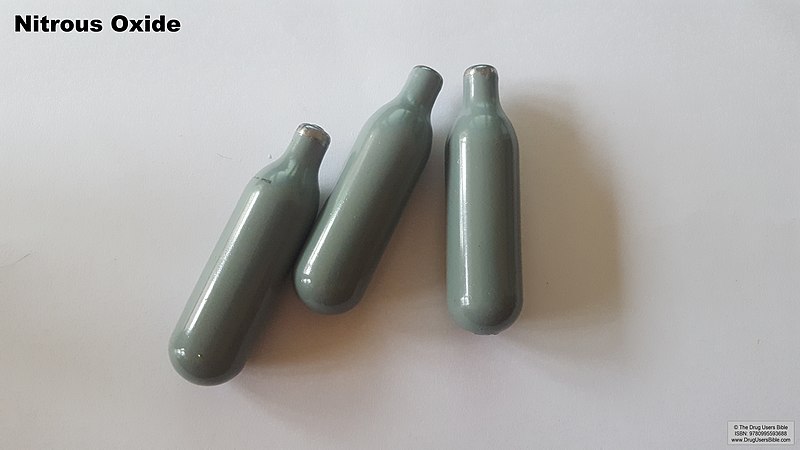
Health experts are cautioning that the proposed ban on nitrous oxide could inadvertently discourage users from seeking medical assistance in hospitals, raising concerns over
potential negative consequences.
In a letter addressed to the government and viewed by BBC Newsnight, 15 neurologists and health specialists have voiced their opinion that criminalizing the possession of this drug might not be the optimal approach. They argue that the prohibition could intensify stigma around users, despite an increasing number of hospital cases involving the effects of the so-called "laughing gas."
The government has indicated its intention to proceed with the ban, although health professionals contend that the move could prove counterproductive.
Nitrous oxide, often sold in metal canisters, is a colorless gas and is among the most frequently used substances by individuals aged 16 to 24. However, its excessive consumption can lead to nerve-related issues such as difficulty walking, loss of sensation in hands and feet, and in some instances, nerve-linked bladder or bowel problems, as well as sexual dysfunction.
While the supply of nitrous oxide for recreational purposes is already prohibited, possession remains legal. This year, the government proposed an amendment to the law, set to potentially take effect before year-end, criminalizing possession of the drug.
In a letter directed to Chris Philp, the minister for policing, the 15 medical experts contend that making possession illegal may not "translate to health benefits in our patients," despite evidence indicating a surge in nitrous oxide-related cases.
Dr. Alastair Noyce, Professor of Neurology and Neuroepidemiology, who authored the letter, highlights concerns about creating "fear of a criminal record" among young users. He points out that such fears might deter users from seeking prompt medical attention, potentially leading to long-term harm.
The letter calls for the government to allocate resources to a national education campaign to inform the public about the risks associated with nitrous oxide misuse.
Proposed penalties for possession of the drug could entail up to two years of imprisonment, an unlimited fine, or both. Consultations with experts and the general public have been initiated by the government in relation to this proposal.
Notably, experts have previously argued that an outright ban on laughing gas might not effectively deter usage. The Drug Science scientific charity, for instance, deems such a ban "disproportionate" and likely to do more harm than good.
While Mohammad Ashfaq, who oversees Kick It, a grassroots organization in Birmingham, believes the ban could curb misuse, some, like Katherine Bramwell from South Wirral, who discovered her son's addiction to nitrous oxide, stress the significance of psychological dependence and urge for greater awareness about the issue.
In a statement, the government expressed its commitment to proceed with the proposed nitrous oxide ban, highlighting its strategy to address the substance's misuse in its anti-social behavior action plan. Photo by DMTrott, Wikimedia commons.




































